When I was invited to share my story, I thought about what to talk about. I think the most special and valuable part of my story would be my job hunting experience in the Bay Area, US. I was very confused during those ‘dark’ days.
In the beginning, I didn’t even know what positions to apply for. I hope my story can help you get through the tough times.
Before sharing my job hunting experience, I’d like to introduce my background. I have been in the telecom industry for more than 10 years. I’m interested in analyzing and solving problems. After finishing the Data Science program, Beamdata provided me with the opportunity to work on 3 different kinds of projects. They covered prediction model building for sales, big data in-house tools, and building a recommendation system at the product level. These 3 projects were good enough to get me my first call for an interview.
What Kind of Jobs Should I Apply For?
Although a lot of positions are listed as Data Scientist, the requirements are variable. According to the job description, I’d like to categorize them as Data Analyst, Data Scientist, and Machine Learning Engineer.
Data Analyst:
In the Bay Area, 70% of data science jobs are actually data analyst jobs. To be more specific, these kinds of positions are mostly for Product Analysts. The keywords in the job description and requirements include:
- Business acumen/product sense/product case study.
- Develop dashboards (data visualization) and define metrics or key performance indicators.
- A/B testing design and analysis.
- Statistics & probability theory.
- Communication skills and can transfer analysis results to business recommendations.
- SQL (or Python).
Data Scientist:
Besides the requirements of a Data Analyst, some positions emphasize:
- Design algorithms, model building.
- Demonstrate experience in the creation, deployment, and performance evaluation of machine learning models.
- Strong understanding of machine learning algorithms, such as regression model, random forest, and logistic model.
- Proficiency in both Python and SQL.
Some positions require candidates to have basic knowledge in deep learning or have experience on certain topics such as NLP and/or computer vision, but that is not very common.
Machine Learning Engineer:
This position is beyond the scope of the Data Science program. The keywords you may see are:
- Production-level coding skills.
- Software development processes (testing, CI/CD, design documentation, project management workflow, code reviews, source control conventions).
- Cloud infrastructure.
- Tensorflow and Pytorch.
- Docker or Kubernetes.
I applied for both Data Analyst and Data Scientist positions during my job search.
How to Prepare for Interviews?
Based on my interview experience, I will share how I prepared for my interviews and the most popular interview questions here.
- SQL:
- Completing SQL questions on Leetcode and HackerRank should be good enough to prepare.
- Leetcode: https://leetcode.com/
- HackerRank: https://www.hackerrank.com/
- Completing SQL questions on Leetcode and HackerRank should be good enough to prepare.
- Statistics & Probability:
- Key concepts (very high frequency):
- Central limit theorem and underlying assumption.
- P-value.
- Significance- level.
- Confidence-level.
- Confidence interval.
- Bayesian formula for conditional probability (You need to know how to calculate it).
- Type1 and Type2 error (same concept in ML).
- These concepts have been asked almost every time if the company listed “Statistics and Probability” in the job requirements.
- Key concepts (very high frequency):
- A/B Testing:
- I didn’t apply for a job with an A/B testing request, but this Udacity course is good for reviewing the statistics concepts listed above.
- Udacity course: https://wwwudacitycom/course/ab-testing–ud257
- Udacity course: https://wwwudacitycom/course/ab-testing–ud257
- I didn’t apply for a job with an A/B testing request, but this Udacity course is good for reviewing the statistics concepts listed above.
- Suggested Books:
- I read these books quickly, but I still feel that it is hard to interview without related industry background or work experience.
- Cases in Point
- Case Interview Questions for Tech Companies
- I read these books quickly, but I still feel that it is hard to interview without related industry background or work experience.
- Product Sense:
- I would suggest getting familiar with the company’s product and business, then preparing for possible questions they may ask.
- Here are some sample questions I collected from the internet and from my own experience:
- Today you immediately notice that your app’s new users are doubled. What could be the reason? Do you think it’s good or not?
- If we have an app with in-app purchases, name at least 4 metrics you would like to monitor in your dashboard.
- If you are running an A/B test and find that the result is very positive, thus you decide to launch it. In the first 2 weeks, the performance of our website is very positive. However, with time flying by, all metrics seem to go back to normal. How will you explain this result?
- Assume we are Facebook and we would like to add a new ‘love’ button. Should we do this? 5). We are running 30 tests at the same time, trying different versions of our home page. In only one case test wins against the old home page. P-value is 0.04. Would you make the change?
- If after running A/B testing you find the fact that the desired metric (i.e., Click Through Rate) is going up while another metric is decreasing(i.e., Clicks). How would you make a decision?
- Assume that you are assigned to estimate the LTV (lifetime value) of our game app player. What kind of metrics would you like to calculate to make a good prediction? Assume that you have already collected all that you want. How would you make this prediction/estimation?
- If you got a chance to add on new features for our app to increase our profit within a very short term. What will you do?
- When I answered the product sense questions, this was the framework I used:
- Ask clarifying questions (what does the product do? who is the product for? company mission, etc.).
- Confirm with the interviewer what the goal of the product is (e.g. increasing conversion, revenue, engagement, retention, etc.).
- Layout the structure of your analysis (e.g. use products lifecycle like awareness, engagement, retention and monetization stages).
- Dive into each section of your analysis (e.g. for each stage, identify the behaviours that can be quantified with a metric).
- Summarize your analysis (restate what you talked about, and then prioritize key metrics from step 4 and state why).
- I would suggest getting familiar with the company’s product and business, then preparing for possible questions they may ask.
- Machine Learning:
- What we learned in the Data Science program covered almost 90% of the interview questions for this part. The frequently asked questions are:
- Bias vs Variance.
- Type1 and Type2 errors.
- L1/L2 regularization.
- Metrics of a model (such as Precision, recall, F score).
- Random forest, bootstrap, Gradient descent (have been asked about this every time).
- What we didn’t learn but are also popular questions:
- Regression model assumptions (very often).
- Statistics model vs machine learning model.
- Time series model.
- What we learned in the Data Science program covered almost 90% of the interview questions for this part. The frequently asked questions are:
- Python Coding / Take-Home Assignments:
- I did take-home assignments twice, and I have been asked to write code online during an interview once. Clustering K-means appeared as solution twice and regression model and time-series model appear once. There is no right answer for take-home assignments. The key is to present your logic and your solution to solve the issue. Try your best to do the assignment, you will be very close to receiving the offer if you can complete it thoroughly.
- Take-Home assignment examples:
- https://github.com/JifuZhao/DS-Take-Home
- Keep the lecture code, they are very good references for take-home assignments.
- Leetcode: I practice Python with Leetcode easy-level questions. I have been asked some questions on data structure, but not often.
- I did take-home assignments twice, and I have been asked to write code online during an interview once. Clustering K-means appeared as solution twice and regression model and time-series model appear once. There is no right answer for take-home assignments. The key is to present your logic and your solution to solve the issue. Try your best to do the assignment, you will be very close to receiving the offer if you can complete it thoroughly.
- Summary:
| Position | Key skills (order by importance) |
| Data Analyst | 1. Product sense 2. SQL 3. Statistic and probability |
| Data Scientist | 1. Python/SQL 2. ML 3. Statistic and probability |
| Machine Learning Engineer | 1. Python or other coding languages 2. Software engineer skill 3. ML |
Timeline for Job Search
I would suggest starting your job search after completing the program. It took me around 2 months to understand the job market, my weaknesses, strengths, and interests. At the same time, please try to work on some real-client projects. WeCloudData’s program can definitely help you with this.
In general, you have to go through 4-5 rounds of interviews. The whole process will take more than 1 month, or even 2 months. It’s not easy to handle several interviews at the same time, especially when you have a take-home assignment. After a couple of failed interviews, you will have more confidence and will know more about your target and career. For me, in the 6th month, I finally got a job offer and I believe that with this information you could land a job even quicker than me.










